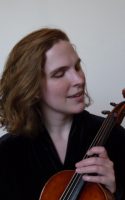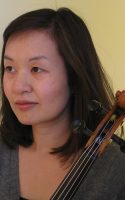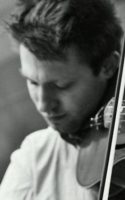Recitals Lecture-Recitals Lectures Masterclasses Workshops
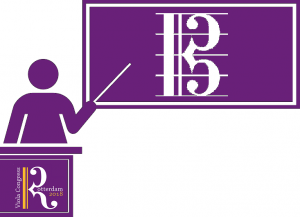 Gallery of IVC2018 Lecture Presenters:
Gallery of IVC2018 Lecture Presenters:
Lectures are 30-minute verbal presentations on a given topic of research, generally held in the IVC2018 Main Hall (Hofpleintheater) as morning sessions from 0900-1100am. Topics are wide-ranging, from YouTube to Brain research.
Some examples of IVC2018 Lectures:
Presenter: Sophie Vroegop (Netherlands)
Date: Wednesday Nov. 21st, morning
 In this lecture, I present my findings on how classical viola players can improve their performance for YouTube. Performing for YouTube is very different from live performances where the audience is present, or CD-recordings, where the performer and the audience cannot see each other. Even though YouTube is used a lot by musicians, we do not often consider the particulars of this new way to perform. I will provide practical
In this lecture, I present my findings on how classical viola players can improve their performance for YouTube. Performing for YouTube is very different from live performances where the audience is present, or CD-recordings, where the performer and the audience cannot see each other. Even though YouTube is used a lot by musicians, we do not often consider the particulars of this new way to perform. I will provide practical
advice for viola players who would like to upload their own material to YouTube.
Presenter: Krzysztof Komendarek – Tymendorf (Poland)
Date: Thursday Nov. 22nd, morning
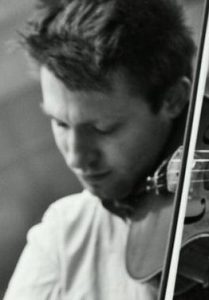 As viola educationalist in Stanislaw Moniuszko Academy of Music in Gdansk, currently I am ending my PhD on Questions of Performance and Interpretation. Regarding Selected Viola Works: Fyodor Druzhinin’s 1959 Sonata for Viola Solo and Mieczysław Weinberg’s 1982 Sonata for Viola Solo No.3, Op.135, which I’m planning to finish in March 2018. I would like to share knowledge and performance experience on the 45th International Viola Congress in Rotterdam 2018.
As viola educationalist in Stanislaw Moniuszko Academy of Music in Gdansk, currently I am ending my PhD on Questions of Performance and Interpretation. Regarding Selected Viola Works: Fyodor Druzhinin’s 1959 Sonata for Viola Solo and Mieczysław Weinberg’s 1982 Sonata for Viola Solo No.3, Op.135, which I’m planning to finish in March 2018. I would like to share knowledge and performance experience on the 45th International Viola Congress in Rotterdam 2018.
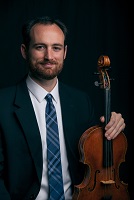 Presenter: Andrew Braddock (USA)
Presenter: Andrew Braddock (USA)
Date: Thursday Nov. 22nd, morning
The lack of an autograph manuscript for Bach’s Cello Suites presents performers with a puzzling question: which edition should I use? Answer: your own! By studying the five original sources in facsimile, every violist can create their own edition, and can themselves become the “Sixth Source”. This process helps all performers to form a deeper connection to the music. In this session, I will present my method for developing one’s own edition, and show the myriad musical benefits learned from this intimate engagement with Bach’s masterpieces.
Presenter: Paul Eggen (Netherlands)
Date: Friday Nov. 23rd, morning
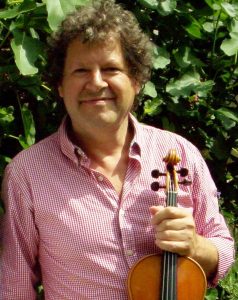 This lecture could be subtitled: ways to find a deeper artistic understanding of the music to be performed, by means of psychological theories, methods and notions. Because there is such a great amount to tell about this subject, it will generally be done here with a bird’s-eye view. You will learn about a few useful theories that were developed by psychologists; besides this you will hear about emotional, physical and cognitive changes while playing and also about exploring compositions in (more) psychological ways.
This lecture could be subtitled: ways to find a deeper artistic understanding of the music to be performed, by means of psychological theories, methods and notions. Because there is such a great amount to tell about this subject, it will generally be done here with a bird’s-eye view. You will learn about a few useful theories that were developed by psychologists; besides this you will hear about emotional, physical and cognitive changes while playing and also about exploring compositions in (more) psychological ways.
Presenters: Kathryn Lowman and Rebecca Glass (USA)
Date: Friday Nov. 23rd, morning
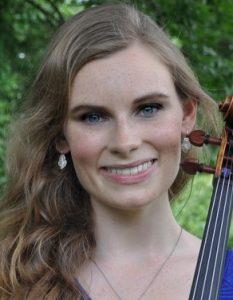
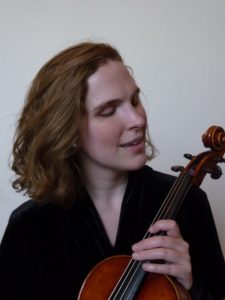 This lecture will feature a dialog between violists Dr. Rebecca Glass and Ms. Kathryn Lowman about the unique tools and techniques that Dr. Glass, a blind violist, has acquired for performance. We will discuss her tools for memorization, artistic expression and how her lack of sight of the printed edition propels her artistic freedom. Through this lecture we hope to highlight key skills that Dr. Glass has acquired and translate them to the sighted player.
This lecture will feature a dialog between violists Dr. Rebecca Glass and Ms. Kathryn Lowman about the unique tools and techniques that Dr. Glass, a blind violist, has acquired for performance. We will discuss her tools for memorization, artistic expression and how her lack of sight of the printed edition propels her artistic freedom. Through this lecture we hope to highlight key skills that Dr. Glass has acquired and translate them to the sighted player.
Presenter: Molly Gebrian, USA
Date: Friday Nov. 23rd, morning
 This presentation will focus on what neuroscientists have discovered about how our brains learn and how to apply these insights to practicing and teaching so that practicing becomes more efficient and effective, leading to enhanced performance ability, enjoyment, and confidence. The presentation is divided into five different sections, starting with the basics of how the brains learns, and an explanation of why the popular
This presentation will focus on what neuroscientists have discovered about how our brains learn and how to apply these insights to practicing and teaching so that practicing becomes more efficient and effective, leading to enhanced performance ability, enjoyment, and confidence. The presentation is divided into five different sections, starting with the basics of how the brains learns, and an explanation of why the popular
practice method of “start at the beginning and play until you make a mistake” is so detrimental to actual improvement and consistency.

